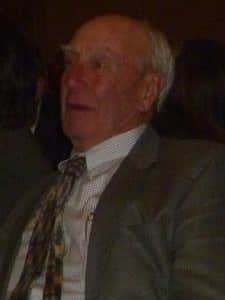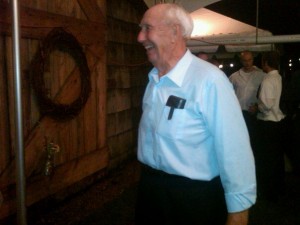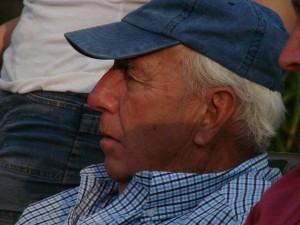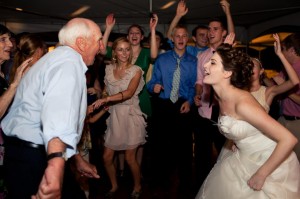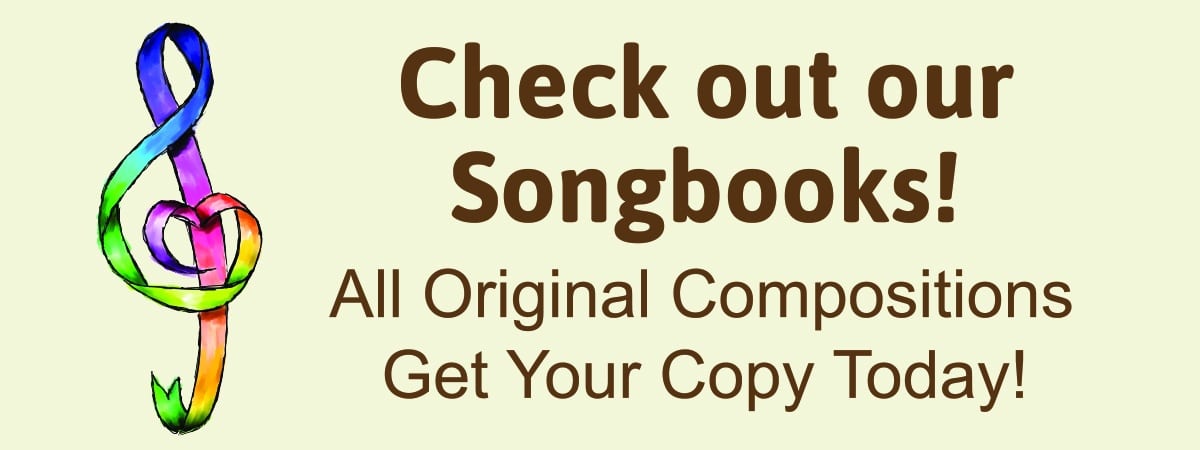One of the best things about writing a blog is the opportunity to tell the story of an everyday hero whose strength and depth might never be widely known but who has so much valuable wisdom to share. The hero for today is my Dad.
A bit of background is in order. I come from a long line of musical excellence on the maternal side of my family. Musical skill and ability were passed down to my siblings and the next generation of grandchildren. Practicing, performing and just making music together are a big part of how we share time as a large family. My father was a constant presence at numerous concerts, recitals and evenings gathered around the piano. Surprisingly, though, my Dad can’t carry a tune. He doesn’t play any instrument. You will most often find him in a comfy seat off to the side with a satisfied smile on his face and sometimes the hint of a tear in his eye. So, what has been his contribution to our big musical family, and more importantly to my life and career as a musician and music therapist? Here in honor of Father’s Day is the story of my father and what he has taught me about music and early childhood music therapy.
Music skill is not all there is to being musical.
My father does not have any of the musical skills that normally are recognized in our society as being necessary to be a musician. But he has a depth of musical appreciation and a love of music that would put many students of music to shame. As a music therapist, I always remind myself to look deeply at the responses of the children to identify those who, like my father, grasp and understand music without producing music themselves in the way we know it.
Listening is a valid music response.
My father can sit for hours in that comfy chair in the corner just listening. But even the term ‘just listening’ is not respectful of the value of listening as a musical response. When the rest of us are playing or singing, my father is just as active in his contribution – listening. Growing up, he would always tell us that that was his role in our music training – to be the listener. And what musician would continue making music if there was no one to listen to them? Sometimes we confuse’ listening’ in order to learn a musical response, with’ listening’ as a valid music response in and of itself. Maybe it is our current emphasis on producing a measurable outcome that has diminished our view of listening. As I work with my early childhood groups, I try and remember myself and educate the other grownups on how to recognize and let children respond to music by active listening.
Music should move us both emotionally and physically.
My father, while not a music performer in the accepted sense of the word, is an amazing and energetic dancer. He is often the first one up on the dance floor and the last one to leave. The grandchildren complain that they can’t keep up with him. He is also one of the first ones standing and clapping at his kid’s or grandkid’s concerts, even though moments ago his closed eyes made us think that he was sleeping rather than appreciating.
And watching his face as the family sings together, it is clear that the music moves him deeply in a way that he might not explain to us in words. As a music therapist, I try and remember his model, and allow myself to be moved by the music both in my feelings and my movements. I try and be one with the music and to let go of the filter of music as something separate from me.
So thank you, Pops, for teaching me so much about music and about being a musical person. I will try and honor your legacy through my work with young children and their families in music.
Beth
Do you have a musical hero in your life? We would love to hear your story here at Raising Harmony.
